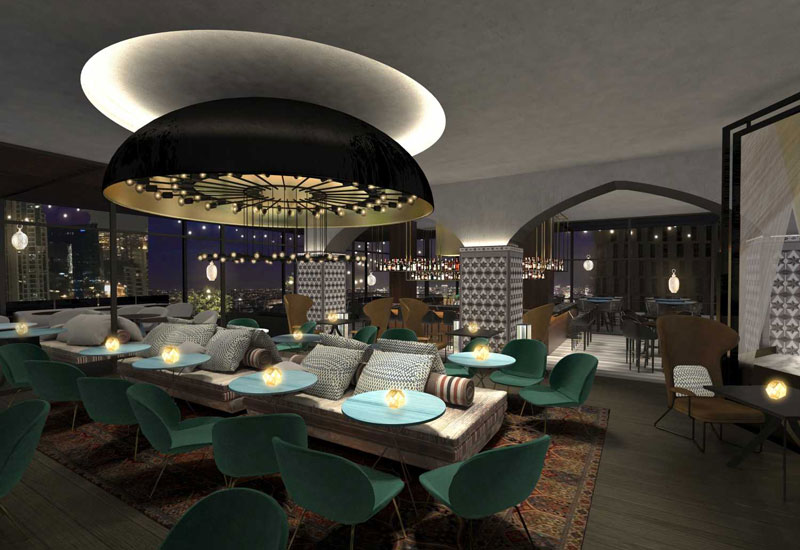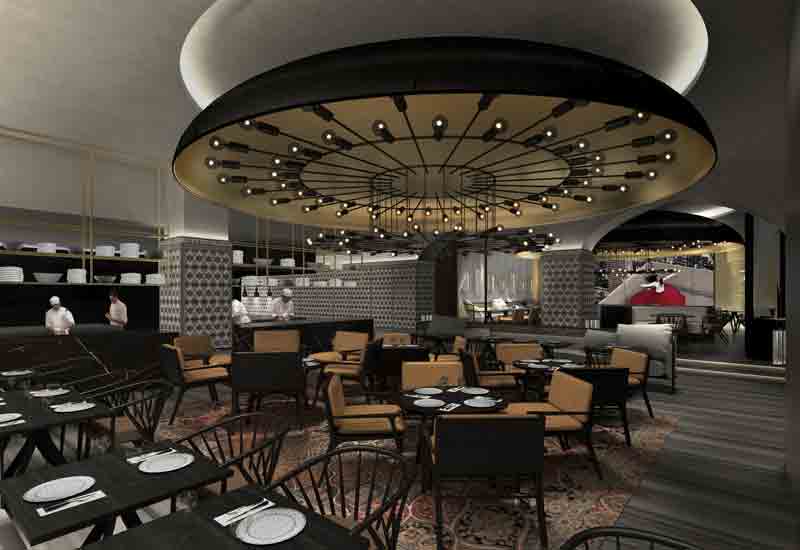Anatolian concept Rüya is setting out to be more than just another Dubai restaurant looking to take a slice of a lucrative, albeit saturated, F&B market.
First of all the project represents the latest venture from d.ream Group (Doğuş Restaurant Entertainment and Management), which is a partner in Coya, Nusr-Et, and Zuma.
Second, the kitchen will be headed up by Colin Clague, a chef who has previously worked with Burj Al Arab, Zuma London and Zuma Dubai, Qbara, and Jean-Georges Dubai.

| Advertisement |
And third, the concept’s creator — Umut Özkanca — already has plans underway to introduce Rüya in the UK, with a vision to turning it into a global brand.
Indeed, Özkanca tells Caterer Middle East that he has had Rüya’s launch in the works for a long time, hence the name, which comes from the Turkish meaning for dream. He and his father have been in hospitality for several decades, opening numerous Turkish restaurants in Istanbul — always with the ambition to bring authentic Turkish food to major international cities around the world.
“Sometimes people have the misconception that Turkish cuisine is all kebabs and doners, which is not even 2% of the cuisine,” Özkanca explains.
“I have been working on this project for 10 years, and we said let’s keep the DNA of Anatolian cuisine as a base and bring it into an international market. I wanted it to be a contemporary Anatolian concept through the eyes of foreigners,” he adds, referring to the fact that his executive chef is from the Isle of Man, an island between England and Ireland.
Asked how the pair started working together, Özkanca says: “Two or three years ago I was in Dubai with a friend and my father, and we had dinner at various restaurants — with the last stop being Qbara. We wanted to get a couple of bites to see what the cuisine was like, but we ended up eating the whole menu — and my father is usually a tough guy to please. This is how we met Colin and when we started working on this project, I called Colin to ask if he wanted to be a part of it."
Clague reveals that he “didn’t need much convincing” to join the project.
Speaking about Rüya’s appeal, he comments: “Umut and his father saw what we did with Zuma and Qbara, and they really wanted to elevate Turkish food in terms of presentation, lightening up some of the dishes and making it more modern. We’re not doing anything fusion at all and obviously Turkey is an enormous country — it’s as big as France and Germany put together — so we have years of going to Turkey and exploring [the cuisine].”
It was the fact that the new concept offers huge scope for creativity and menu development that really piqued Clague’s interest: “A reason I left Zuma Dubai is, no matter how much I love Japan, it is a very small geographical area. It got quite repetitive; you’re thinking of new recipes but it’s all soy, sake, miri. The sheer size of Anatolia, and the number of dishes it offers, will last a lifetime.”
Illustrating his point, he reveals that at a pre-opening dessert tasting, Rüya’s pastry chef, Elizabeth Stevenson-Hocks — who previously worked with Clague at Qbara restaurant — was surprised to be presented with a dessert made of chicken (which didn’t make the final cut for the menu, he notes).
Coming back to Rüya’s appeal, Clague reveals: “Something new where I can learn always excites me. It was great working with Jean-Georges but I could see that fine dining is not what the people of Dubai want.
"People of my age are leaving Dubai because it’s getting too expensive; the demographic is changing and people are not wanting a 1,000 dirham (US$272) a head three-Michelin star experience. They want a Zuma or a La Petite Maison type of thing — a three-in-one stop comprising great drinks, great food and great music.”










 Search our database of more than 2,700 industry companies
Search our database of more than 2,700 industry companies









